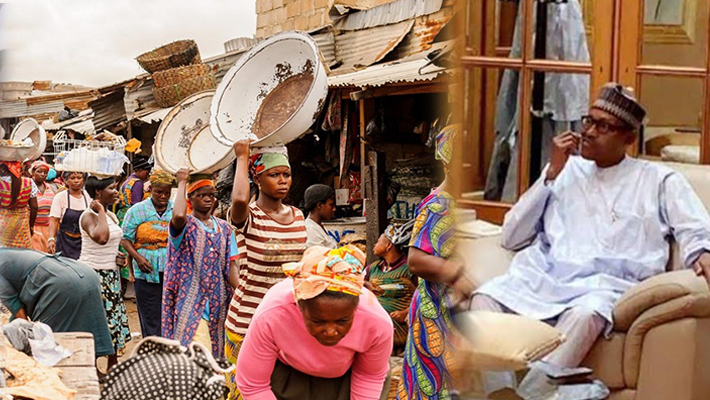President Muhammadu Buhari’s regime says it plans to generate N2.62 trillion revenue from taxing Nigerians through VAT in 2022.
The Federal Executive Council (FEC) has approved the 2022 – 2024 Medium Term Expenditure Framework and the Fiscal Strategy Paper (MTEF/ FSP).
Minister of Finance, Budget and National Planning, Zainab Ahmed, disclosed this after the meeting of the council, which was presided over by President Muhammadu Buhari in Abuja on Wednesday.
According to her, the MTF/ FSP describes the federal government’s socio-economic and developmental objectives and priorities for the reporting period of 2022 to 2024 and the financial strategies to put in place and policies to achieve the priorities.
She said her ministry presented a memo to FEC with a 2022 projected revenue of N6.54 trillion and N2.62 trillion to accrue to the Federation Account and Value Added Tax (VAT), respectively.
The minister projected the revenue to increase in 2023 to N9.15 trillion.
She explained, “The goal for us is to improve the nation’s macro-economic situation or reposition the economy. The MTF/ FSP consists of medium-term macro-economic projections, fiscal targets, and estimates of revenue and expenditure, including the government’s financial obligations.
“We have also presented to the federal government the projected revenues for 2022 to 2024. Specifically for 2022, the revenue that we expect is N6.54 trillion and N2.62 trillion to accrue to the federation account and VAT, respectively. And then, there will be a net oil and gas revenue available for the federation account for distribution will be N6.15 trillion in 2022.”
READ ALSO: South Africa: Ex-President Zuma jailed for 15 months for refusing to obey court order
She further disclosed that this revenue “is projected to increase in 2023 to 9.15 trillion,” pointing out that the total expenditure “we are expecting we have projected and approved by council is an aggregate expenditure of N13.98 trillion.”
That includes N1.1 trillion of government-owned enterprises expenditure and grants and donor-funded projects totalling N62.24 billion.
“This means that this budget is just three per cent higher than the 2021 budget in terms of the size of expenditure,” said Ms Ahmed. “We also reported to council the budget deficit and the financing items for the expenditure.’’














